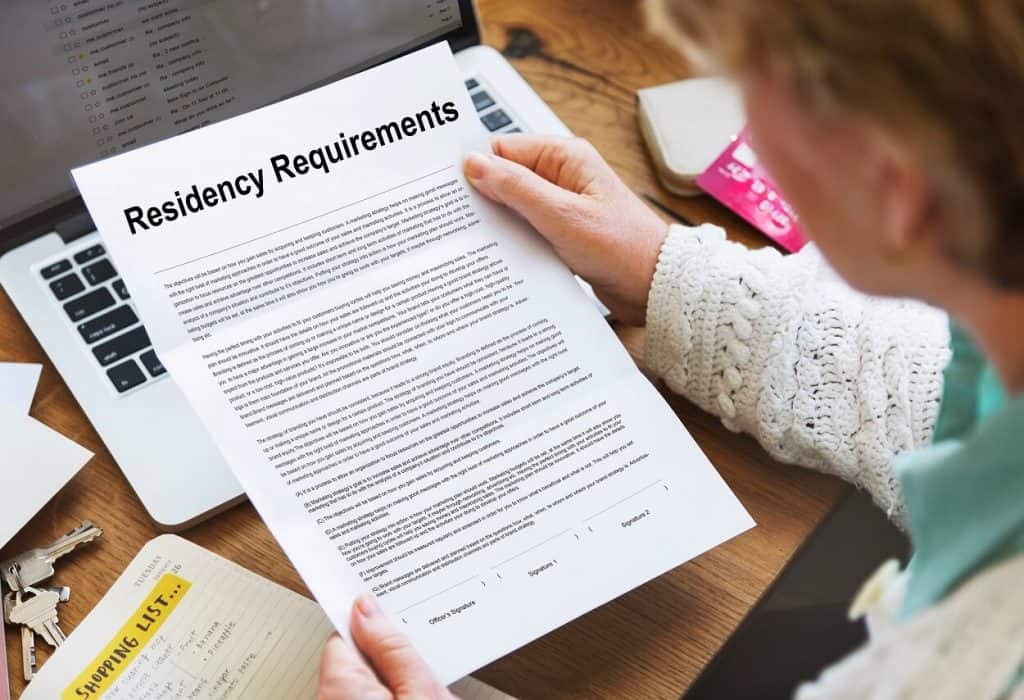When spouses wish to end their marriage, there are a few issues that they need to resolve during a divorce, and one of them is splitting everything they have accumulated as a married couple. If they cannot find common ground, their disputes are more likely to be resolved by a third party. To better understand how their possessions will be shared in court, it is important to differentiate between common and community property laws and determine which assets are to be split and which are not.
If you wonder if Georgia is a community property state, the answer is “no;” it is a common law property state. Georgia divorce laws on property division presuppose a fair split of marital assets instead of an equal one. Moreover, not everything acquired during a marriage is considered joint property. For example, if a certain asset is in one spouse’s name only, they will have sole ownership over it no matter when they got it.
However, there are always exceptions. For example, based on the information above, it would be logical to say that separate bank accounts are non-marital property. Yet, your spouse or their lawyer may argue it’s not true. In certain situations, for example, when the length of a marriage was pretty significant, tracing what money was used to contribute to an account might be hard. Moreover, your or your ex’s personal finances might have been used to upgrade the joint property, which complicates the discussion about the fairness of the account split or lack thereof.
Let’s figure out what assets are joint, which ones are separate, and how they are distributed between spouses in a divorce.
What Is Community Property in Georgia?
In community-property states, assets acquired by spouses during their life together are known as community property, which is to be shared when partners decide to end their marriage. It is called marital property in Georgia and other common-law states.
Examples of Community Property Assets

Along with physical property such as houses, vehicles, and antiques, every penny invested or saved in banks is subject to division.
Community or marital property may include:
- Marital home;
- Real estate properties;
- Vehicles;
- Businesses assets;
- Stocks and bonds;
- Financial accounts;
- Retirement plans;
- Insurance policies;
- Investments;
- Furniture and decorations;
- Jewelry;
- Personal items;
- Equipment and tools, etc.
Community Property Debt and Liabilities

Any debts and liabilities acquired during the marriage may also be considered marital and subject to division. So, even if one party took on the debt, the court may divide liability for it between spouses if the circumstances prove it to be equitable.
Marital debts and liabilities may include:
- Credit card debts;
- Mortgage debts;
- Medical bills;
- Student loans;
- Auto loans;
- Boat loans;
- Personal loans;
- Leases;
- Home equity lines of credit;
- Any other financial obligations.
What Is Separate Property in Georgia?

According to property laws in Georgia, assets and funds accumulated by one party before the date of contracting their marriage are considered sole property unless they are blended in with a joint one. Gifts, except for those between partners, inherited items, and other belongings that both spouses agree are owned solely by one are examples of non-marital assets.
Even though personal property remains in the owners’ possession, all divorcees are supposed to inform the court about it during the divorce process. This is how the judge can better understand each party’s financial situation and consider it along with a few other factors, such as their contribution to the household and the length of the marriage, when making a final decision.
How Do You Prove Separate Property in Georgia?
Since any item of separate property can easily become marital, even without you knowing about that, some judge’s decisions may surprise you at the court hearings. That’s why you may be required to prove your sole ownership to protect your personal possessions from division.
Evidence that can prove sole ownership may include:
- Original documentation;
- Financial statements;
- Records;
- Deposit and withdrawal slips;
- Receipts;
- Deeds;
- Purchase agreements;
- Transfer agreements;
- Witness testimony.
Of course, it may be difficult to trace the assets’ origin and the following path, especially with the lapse of time. Moreover, when purchasing something, no one thinks they may be forced to divide it with a potential spouse one day, thus ignoring the need to preserve original documentation, receipts, and other vital records.
In most difficult cases and contentious divorces, one may require the services of financial experts, appraisers, evaluators, forensic accountants, etc., to conduct a thorough examination, establish ownership, and define the asset’s true value. These experts’ testimony will also be used as evidence in the court.
One of the best ways to strictly differentiate between marital and separate assets and provide this information as evidence to the court is to enter into a prenuptial or postnuptial agreement. These documents usually govern the judge’s decisions during the divorce proceedings.
Even if you did not sign any marital contracts with your spouse, you may draft a Marital Settlement Agreement as part of your divorce paperwork, clearly specifying the type of each asset and how you want it to be divided after your marriage ends. Yet, proper terminology means a lot, so you must be extremely careful with the wording when drafting such documents. A consultation with an experienced family lawyer, who will help with the right formulations, is highly advisable.
When Does Separate Property Become Community Property?

If you fail to preserve the separate status of your own pre-marital possessions during the marriage, they can become community or marital property subject to equitable distribution in Georgia.
For instance, a separate asset can become marital if it was used in the marriage’s interest or for its benefit or if it was somehow mixed up with shared assets, which may happen intentionally or unintentionally. In such cases, really solid arguments and evidence would be required to prove the sole ownership of this or that item. An even more confusing issue is the increased value of a separate asset that occurred during the marriage. Some basic principles of comingling or transmutation can help understand when and how separate property morphs into marital.
Comingling is the result of intermixing one party’s separate property with the separate property of the other party or with their marital property. Sometimes, it happens intentionally, when a spouse deliberately adds the partner’s name on the pre-marital house deed, their personal bank account, or any other separate asset they brought into the marriage. In such cases, a couple should be aware of the asset’s changed status and accept its equitable division during divorce.
However, commingling occurs unwittingly in most cases when neither spouse realizes the shift and its consequences. Indeed, the ways assets move around in a marriage are numerous: people change bank accounts, buy things and make other material contributions to the family life from their personal sources of income, sell things and use these proceeds for the household’s benefit, etc. The list of examples is endless, but let’s consider the most typical ones.
- If you use the funds from your inheritance to buy something for your family or to launch a family business, this purchase or business will become a marital asset.
- If you pay the marital bills, loans, or your spouse’s debts with money from your personal bank account, it will become a marital asset.
- A part of the house you bought before the marriage will become a marital asset if you use the money from the family budget to make any improvements to it. The appreciation of its value that results from the mutual investments is also your shared marital asset.
- The proceeds from the sale or rent of your pre-marital property deposited into your family savings account will become joint.
- Any deposition of the family income into your personal bank account or of your own inherited, gifted, or earned funds into the family savings account will make both accounts marital.
Generally, any contribution from your personal bank account for the benefit of the family will become a marital asset. Undeliberate mixing of shared and personal sources of income will make them shared. So, if you failed to keep your own assets separate during marriage, their detailed tracing is the best way to protect your separate property from division during divorce. However, the task is not that easy, especially in the case of liquid assets that undergo numerous transactions and indirect impacts.
Is It Worth It to Fight Over Separate Property During Divorce?

A range of factors should be considered when making an informed decision about whether your personal possessions are worth fighting for. Since the issues of divorce and property division are quite complicated and challenging, this struggle may turn out to be unreasonably demanding and cost you lots of effort, money, time, stress, and physical health. In any case, a consultation with an experienced divorce attorney is highly advisable.
So, before you decide if you want to start the fight with your soon-to-be ex for the disputed piece of property, thoroughly consider a few important factors and weigh their pros and cons:
- Financial Considerations. Since proving your sole ownership of this or that asset entails a whole range of actions, including tracing, valuation, evidence presentation, etc., it may require the involvement of several experts and other players in the process. Apart from enormous efforts to collect the necessary documentation and evidence and find proper witnesses, you will need to spend thousands of dollars on tracing experts, forensic accountants, evaluators, appraisers, etc. In addition, the lawyer’s hourly fees will add several thousand more, considering the prolonged complex litigation and all the time this expert will need to spend on your case to defend your interests and rights in court. Therefore, think wisely if you can afford all these expenses and if they can be commensurable with the value of your property.
- Emotional Aspect. Firstly, the extremely complex and exhausting process described above is too emotionally challenging. So, think if you are ready for all the stress that will drain you mentally and physically. Secondly, consider the emotional bond you have with the assets you need to prove your ownership right. For example, you could inherit your grandma’s house, which you have loved dearly since your earliest childhood. A myriad of memories and a rich family history make it too precious for you to let it go. However, after your marriage, you started living in it with your spouse and added their name to the house’s title, making it your marital property you need to divide now whatever it takes. In such a case, you may be unwilling to sell it for equitable division purposes or give it up to your soon-to-be ex, and your eagerness to fight for it is quite justified and understood. On the other hand, a house that reminds you about a once happy life with a person you loved may evoke too many painful memories, hindering your healing process after divorce. That’s when this emotional bond can only hurt, prompting a brand new start in a new place.
- Children. Perhaps the most important factor to take into account during divorce is children and their well-being in this new reality with divorced parents. Consider custody arrangements and your kids’ safety, convenience, stability, and overall welfare. Think if the preservation of your personal assets can have a positive influence on these matters and their future. For example, if you get primary custody, you must fight for your marital home to maintain a familiar and stable environment for your children, who will live with you after the divorce. If any of your personal accounts you have erroneously mixed with your spouse’s will help you secure a better future for your kids, the struggle may also be worth trying.
Finding reasonable answers to these questions can help you decide if you should start the fight. In any case, you should first try to discuss the issue amicably with your spouse and reach a compromise. A calm and meaningful conversation can help you find a well-grounded solution that will benefit all parties involved and avoid a tiresome contested divorce process.



